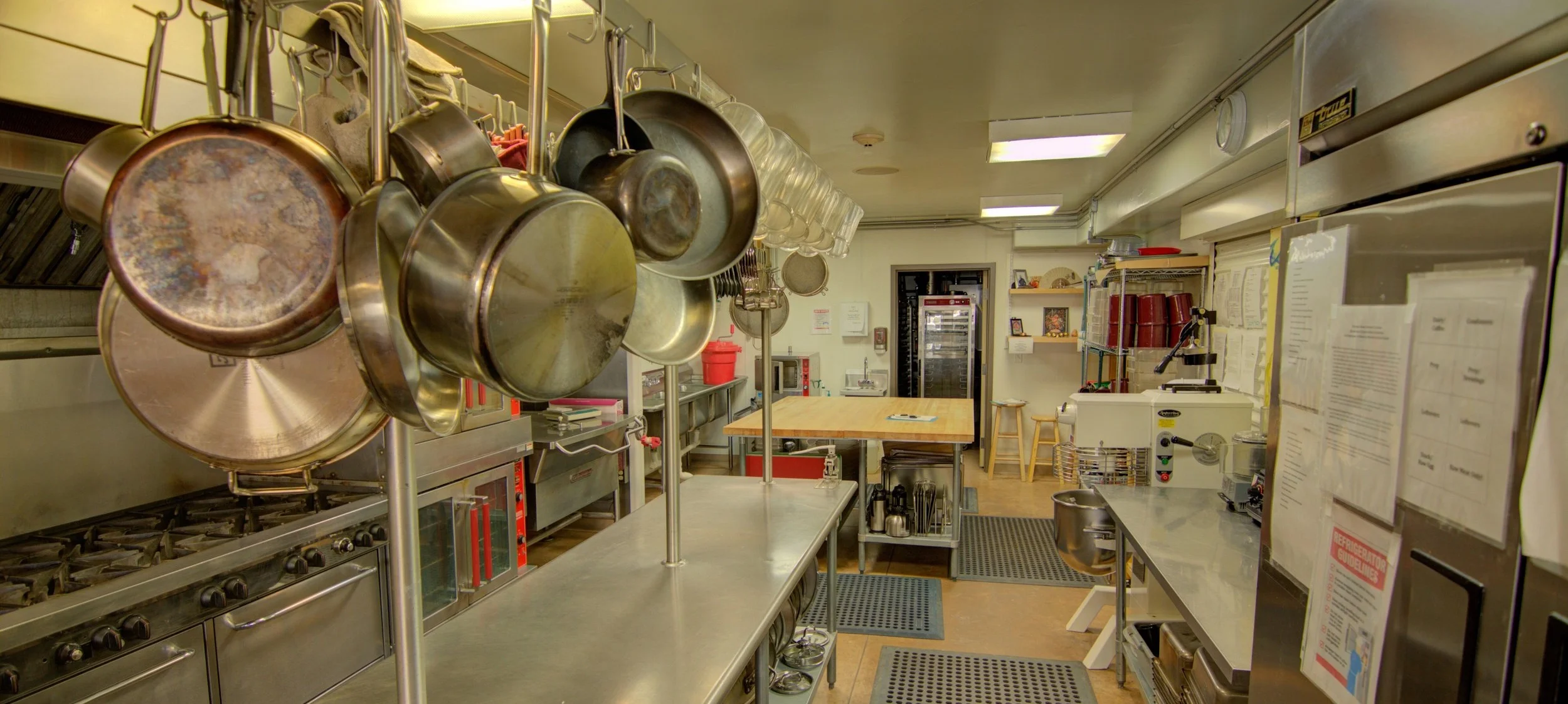Kitchen & Dining
We are committed to sourcing the healthiest possible local, sustainable, and/or organic whole foods available to us from farms and suppliers in Crestone, the San Luis Valley, and the Rocky Mountain region.
In the kitchen, we prepare food in ways that are nutritionally balanced and beneficial to health and practice. Our relationship to the kitchen is as a space of practice, acknowledging the kitchen’s energetic and physical impact on participants, teachers, and the program container as a whole. With years of experience cooking for retreats both large and small, our kitchen staff is skilled at serving menus that are of the highest quality, nutrition, and taste.
Professional Facilities & Cooking Staff
Our spacious, professional, commercial kitchen is the center of our food service operation. With state-of-the-art appliances, a walk-in dry storage closet and refrigeration unit, commercial dish washing machine, and attached kitchen office, our kitchen staff can prepare healthy menus for up to 100 persons per day.
Core Menu Commitments
Prioritizing local, sustainable, organically grown, non-GMO whole foods grown with fair labor and trade practices.
Creating gluten-free meals. Cooking with gluten-free grains (amaranth, buckwheat, corn, millet, quinoa, and teff ) and products, while avoiding the use of the gluten-containing grains (barley, wheat, rye, and oats ) and products. Providing organic sprouted wheat bread products as an optional choice in the snack fridge.
Being mindful of sugars. Offering local honey, organic grade B maple syrup, and agave nectar (vegan alternative to honey), while avoiding sugar cane and sugar beet products.
Serving mostly dairy-free meals with some alternatives as-needed. Providing high-quality, grass-fed dairy products as a condiment and in the snack fridge.
Sourcing high-quality eggs, meat, and poultry. Serving only antibiotic and hormone-free, pasture-raised products.
Offering vegan/vegetarian options served at each meal. Providing sprouted whole grains, legumes, nuts and/or seeds for adequate vegan protein.
Labeling all known ingredients and known allergens in each dish so they can be avoided.
Using in moderation soy products that are fermented, such as miso, tempeh, tofu, and wheat-free tamari.
Pre-soaking grains, beans, nuts, and seeds to enhance the nourishment of the participants, especially vegans/vegetarians. Cooking beans with kombu for better digestion and enhanced nutrition.
For those with sensitivities/allergies, who cannot eat from the regular menu, we will provide a special diet of plain cooked vegetables, grains, and plain meat.


